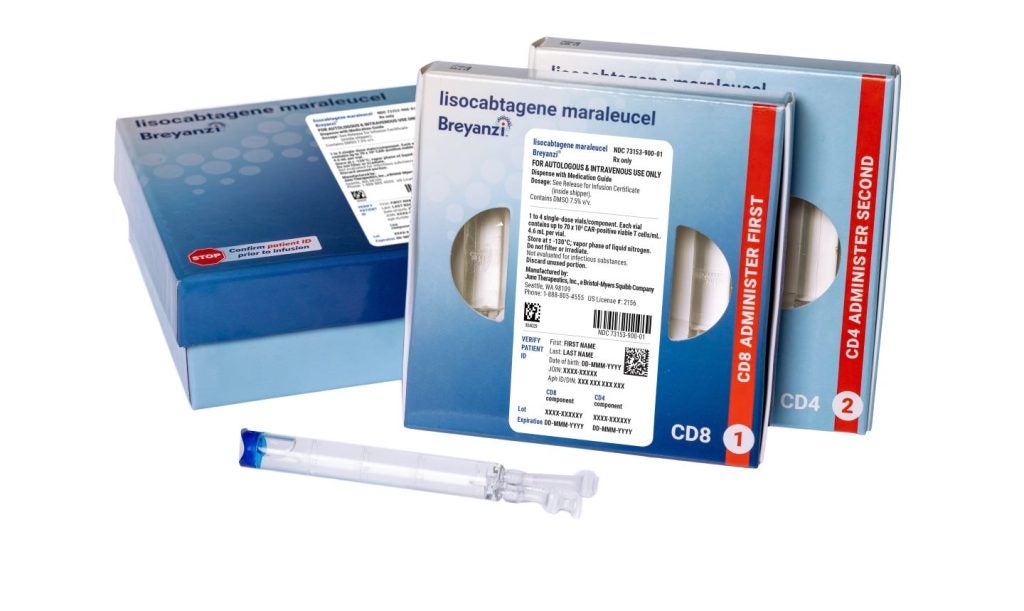Bristol Myers Squibb (BMS) has received approval from the US Food and Drug Administration for Breyanzi (lisocabtagene maraleucel; liso-cel) to treat adults with relapsed or refractory mantle cell lymphoma (MCL).
The CD19-directed chimeric antigen receptor (CAR) T cell therapy is indicated for MCL patients who have received a minimum of two lines of systemic therapy previously, including a Bruton tyrosine kinase (BTK) inhibitor.
The latest approval for Breyanzi marks it as the CAR T cell therapy available to treat the broadest array of B-cell malignancies, now including the fourth distinct subtype of non-Hodgkin lymphoma.
Administered as a one-time infusion, the cell therapy’s single dose contains 90 to 110 x 10^6 CAR-positive viable T cells.
Breyanzi comes with boxed warnings for cytokine release syndrome (CRS), neurologic toxicities and secondary hepatological malignancies.
The approval is grounded in results from the MCL cohort of the TRANSCEND NHL 001 trial, which enrolled adults with relapsed or refractory MCL.
According to the primary analysis data from the MCL cohort, an overall response rate of 83.1% and a complete response rate of 72.3% were reported.
The median duration of response was 15.7 months, and progression-free survival was 15.3 months.
Breyanzi has shown a consistent safety profile across clinical trials, with any grade of CRS occurring in 54% of subjects, including Grade >3 CRS in 3.2% of them.
Bristol Myers Squibb Commercial, Cell Therapy head and senior vice-president Bryan Campbell said: “With Breyanzi, we are delivering on the promise of cell therapy by offering a definitive treatment option for some of the most difficult-to-treat lymphomas.
“We are proud of the advances we are making to bring our differentiated CAR T cell therapy to the most patients across indications and lines of therapy to ensure treatment options that provide improved outcomes are available when most needed.”
The latest development comes after the European Commission approved Bristol Myers Squibb’s Opdivo (nivolumab) combination with gemcitabine and cisplatin for the first-line treatment of adult patients with unresectable or metastatic urothelial carcinoma.









